M1: Widow finds new figures about smart motorway tech ‘traumatic’
- By Matt Taylor
- BBC News, East Midlands
6 hours ago
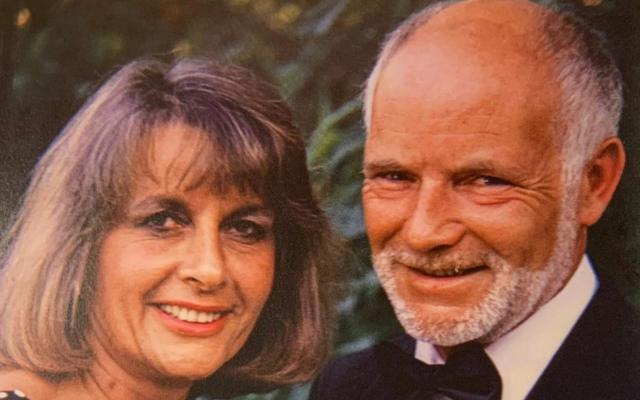
Image source, Family photo
A widow who lost her husband when he pulled over on a smart motorway continues to call for hard shoulders to be reinstated.
Sally Jacobs' husband Derek was killed after his van broke down on the M1 in Derbyshire on 19 March 2019.
She spoke after a BBC Panorama investigation found the technology behind England's smart motorway network regularly stops working.
National Highways said "smart motorways are our safest roads."
There are 193 miles of "all-lane-running" motorway, meaning the hard shoulder has been permanently removed to provide an extra lane to try to ease congestion.
The government announced last year that it will stop building new stretches of these roads, following concerns about cost and safety
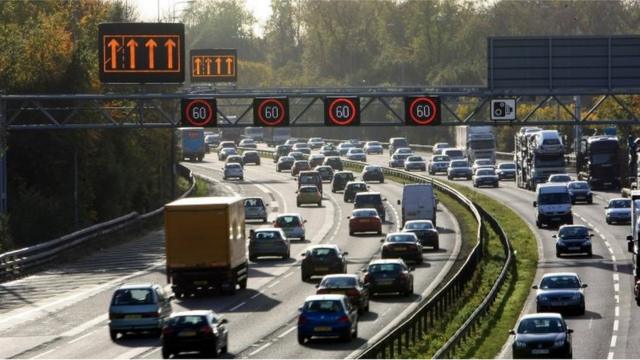
Image source, PA
Radar and camera technology exists to spot broken-down vehicles, with warning signs then supposed to close affected lanes.
Figures released following Freedom of Information requests by Panorama show that between June 2022 and February 2024 there were 392 incidents when motorway technology lost power, making it difficult to detect when a vehicle has broken down.
Mrs Jacobs, of Edgware in Greater London, said the Panorama episode "really upset" her, describing it as "very traumatic".
Mr Jacobs was 83 when a blowout affected one of his tyres on the M1, causing him to pull over. A woman, 77, failed to see the van in time and hit it, causing the van to crush Mr Jacobs against the safety barrier.
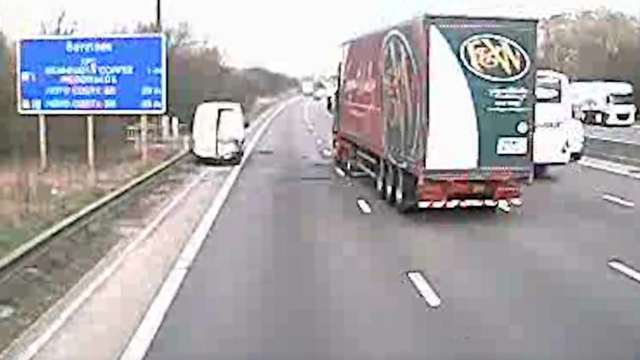
Image source, Derbyshire Police
The woman's 78-year-old husband was also injured and died in hospital.
Assistant coroner Susan Evans told Chesterfield Coroner's Court Mr Jacobs would not have died if there had been a hard shoulder for him to stop in.
At least 79 people have been killed on smart motorways since they were introduced in 2010, with Mrs Jacobs saying it is "horrific" to see other families go through what she did.
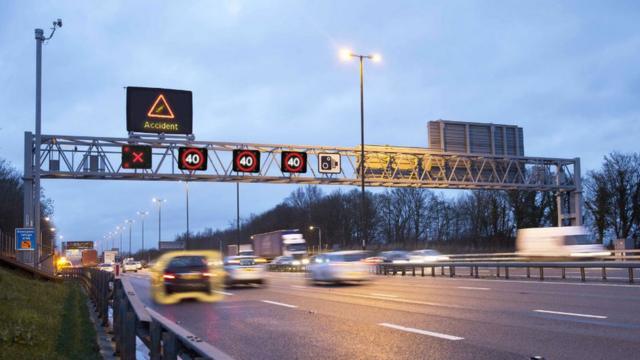
Image source, Gov.uk
Months of roadworks to install 50 new refuges on smart motorways through the Midlands began on 2 April in a bid to make smart motorways safer.
However, Mrs Jacobs and other campaigners are not convinced.
She said: "Have you seen the size of them? Apart from that, when you join a motorway or leave it, there's a long run-in. How the hell do you get back in the traffic from there with cars whipping down?
"You take your life in your hands getting back. If there's another car or a lorry in that refuge, you're stymied, aren't you?"
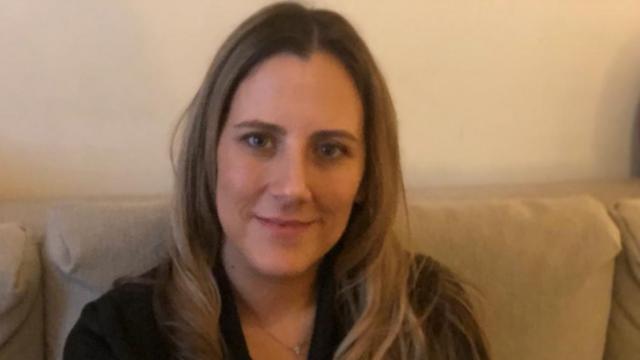
Ana Borges, from Kegworth, Leicestershire, whose car was hit by a lorry when it broke down on the M1, told the BBC [1]the only way to ensure drivers are safe on motorways is to reintroduce hard shoulders.
She said: "I broke down between emergency bays. I remember seeing a sign saying the next emergency bay was 400 yards away, and I never reached it.
"I just don't understand why they are spending money building new bays if they can just put the hard shoulders back again."
National Highways said BBC Panorama's coverage on smart motorways and the technology deployed on them is "absent of key information and relevant context".
In a statement, the body said: "To state clearly at the outset, safety is National Highways' highest priority, and our motorways are statistically some of the safest in the world.
"There is still work to do, as every death is a tragedy, and every serious injury a life changed. We accept that we need to help everyone feel confident when using smart motorways.
"We are taking action to close the gap between how drivers feel and what the safety statistics show by increasing the number of emergency areas, delivering education campaigns, and improving the resilience of our operational technology systems."
References
- ^ told the BBC (www.bbc.co.uk)